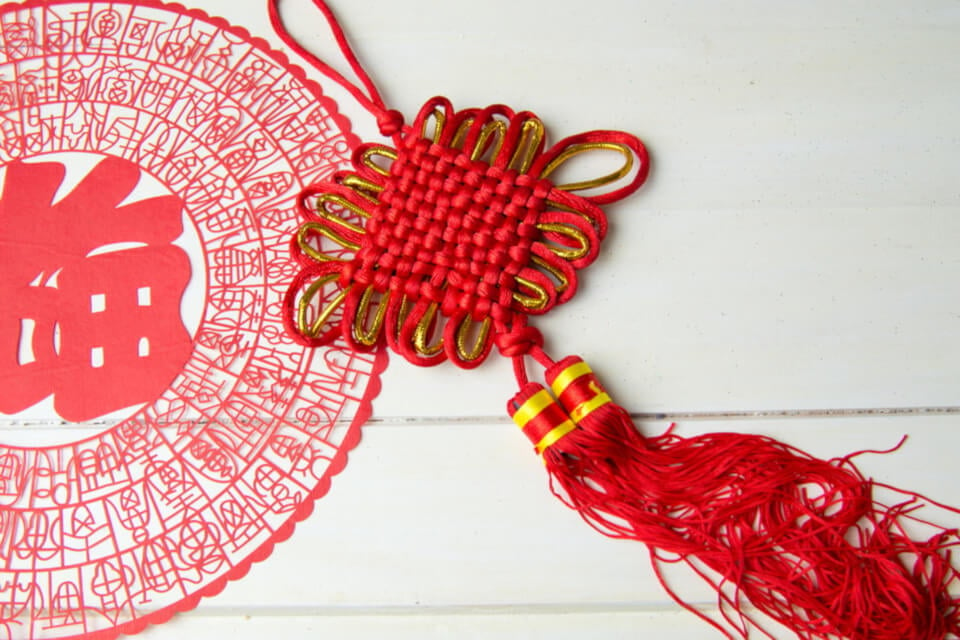What are afflictions in Feng Shui?

Many times, when we think of this ancient oriental art, we only imagine advice related to decoration and the proper arrangement of furniture. But Feng Shui, like all branches of Chinese metaphysics, requires a balance of energies between positive and negative. These not-so-positive energies are known as afflictions. Let’s see then what are afflictions in Feng Shui.
The balance between yin and yang
Something that we must explore first, before entering to analyze what are afflictions in Feng Shui, is related to yin and yang.
Receive all our tips by email!
Love Astrology? Subscribe Now and Receive Exclusive Content!
Perhaps you have seen the symbol of the circle part black, part white, and each portion with a small circle of the opposite color.
This is known as yin and yang, or, in other words, the perfect balance.
For Feng Shui this balance is essential, and that is why the energies of our homes and workplaces are also permeated by yin and yang.
For this reason, not all the energies that inhabit our buildings can be positive since there need to be balanced.
And to achieve this balance is that there are afflictions in Feng Shui.
What are afflictions in Feng Shui?
You already know then that, for Feng Shui, the energies must be balanced, and that those that are not considered so positive take the name of afflictions.
Each year, in certain coordinates, four harmful energies or afflictions are housed, which require special care not to be activated, since their effects are quite harmful.
These afflictions are:
- The Grand Duke or Tai Sui
- The Sui Po
- The three assassins or San Sha
- The yellow five star or Emperor
The Grand Duke or Tai Sui
When talking about what afflictions are in Feng Shui, the first of these harmful energies to be aware of is the Grand Duke.
This affliction is related to the planet Jupiter (which marks the twelve years of the Chinese zodiac) and always represents the ruling animal of the year.
Afflictions in Feng Shui – The Sui Po
Also known as the one who breaks the year, it corresponds to the opposite direction of the Grand Duke.
When analyzing what afflictions are in Feng Shui, it represents direct opposition to Tai Sui, and therefore a clash of energies.
In this sector, it is also not good to make noises that “disturb” this affliction. Well, if activated, its effects have to do with the loss of money, obstacles, and health problems in the elderly members of the family.
The three assassins or San Sha
When talking about what afflictions are in Feng Shui, the one known as “The three killers” cannot be ignored.
This affliction is actually divided into three: the sha of theft, the sha of calamity, and the sha of the year or curse of the year, and they are actually harmful when activated.
It is very important to avoid annoying noises and slamming doors in the area where this affliction is located. Following these recommendations will counteract its effects, related to the loss of loved ones, the loss of fortune, and the loss of reputation.
A very important piece of advice in the face of this affliction is that you never feel yourself turning your back on it.
The yellow five star
The last of the afflictions in Feng Shui, but no less complicated, is the flying star known as the yellow five.
This energy, of the earth element, when activated, brings misfortunes of all kinds because, in addition, it is unpredictable, since it does not have its own trigram, as if it happens with the rest of the flying stars.
You must be careful not to spend a lot of time in the sector where this star is staying, nor to start remodeling.
It is also very important that you do not “feed” this star with the fire element, such as excess light, noise, burning candles, etc. Rather, decorate with a metal element, which wears down the earth from the star.
Now that you know what afflictions are in Feng Shui, take them into account to avoid their activation and their negative consequences.

You may also like:
- Feng Shui Bagua basics: know them and improve your life
- Feng Shui items: their symbolism and use
- How to Feng Shui your workplace: improve productivity and happiness

